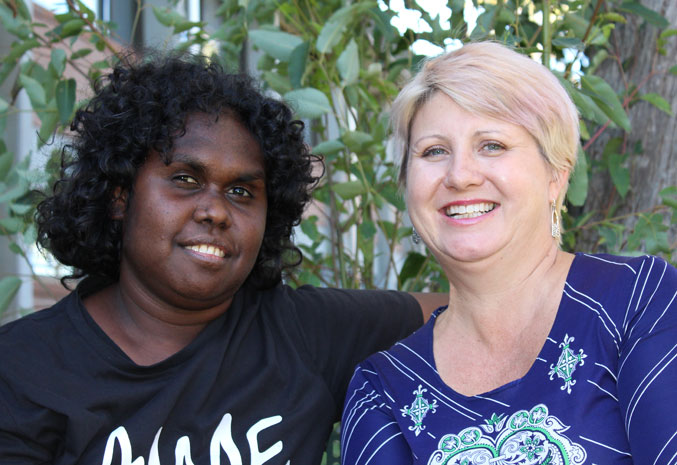Stories behind the statistics
Medical anthropologist Associate Professor Kate Senior’s work with young women and their decisions regarding relationships and parenthood was pioneering in its study of contemporary gender politics in remote Indigenous communities.

Motivated to understand the continuing disparities in health between Indigenous and non-Indigenous communities, Senior’s research highlights how complex health problems require deep consideration, culturally nuanced understanding and sensitive communication.
“I want to understand how people think and behave regarding their health and well-being and to position these understandings within a framework which encompasses, culture, history, opportunity and the social determinants of health,” she said.
Her research began in the community of Ngukurr, in South East Arnhem Land, Northern Territory, nearly 20 years ago. Senior explored people’s understandings of health and illness and the nexus between these and the health services available to them.
Over time, Senior became increasingly interested in the lives and decisions of Indigenous young people. Her work with young women and their decisions regarding relationships and parenthood led to an Australian Research Council (ARC) funded study of young people’s sexual decision making in communities in the Northern Territory, Western Australia and South Australia.
This was followed by ARC Future Fellowship funding to explore young people’s lived understandings of the social determinants of health. Under this project, Senior has worked with a new generation in communities across the Northern Territory, and in our local region, which has rounded out a view of health and well-being spanning three generations.
“As an anthropologist, I’m an advocate for the validity of qualitative research and continue to provide compelling reasons why this sort of research can shed light on complex health problems. I am committed to the involvement of young people in my research and for them to be instrumental in developing the research focus.”
This approach has borne out some important results. For example, Senior’s recent paper, ‘Young, clean and safe’, which explored young people’s perceptions of safe sexual relationships, found their understandings were very different to those contained in standard public health messages.
Copyright © 2016 University of Wollongong. CRICOS Provider No: 00102E Privacy | Disclaimer & Copyright Info | Site Map

